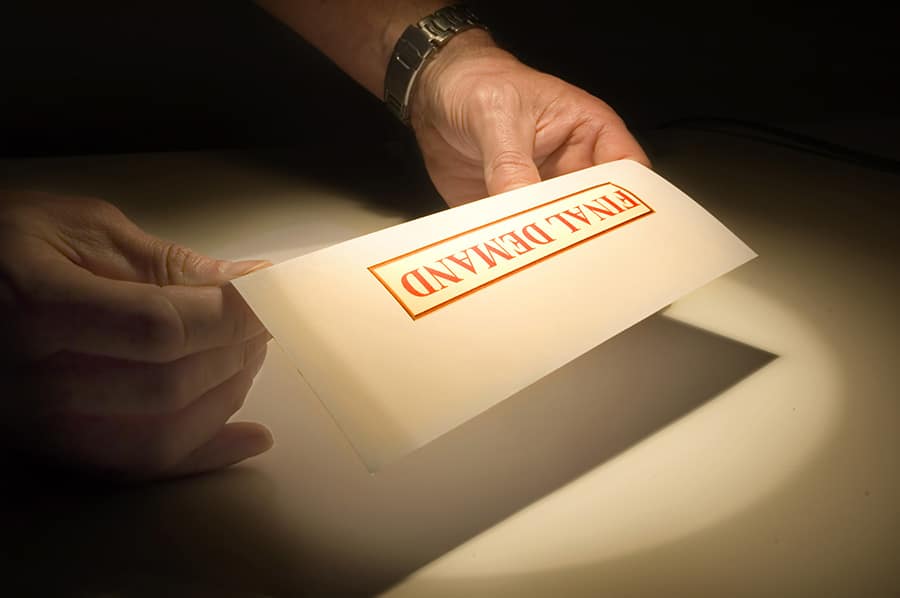A demand letter is a formal letter sent by a creditor to a debtor which notifies the debtor about the debt, makes a demand for payment, and informs the debtor that if payment is not made, the creditor can start the legal process to file suit and obtain a judgment.
Creditors want to be sure that their demand letters are lawful and effective and therefore it is best that a seasoned collections attorney reviews your demand letter to ensure it complies with the law.
Additionally, it is always a good business practice for creditors to remain professional, contact debtors at reasonable hours of the day, send proper notifications to allow the debtor time to respond, and to not harass a debtor or make threats for their failure to pay.
When a creditor, either on their own or through a collections law firm or collections agency, sends a demand letter, the court if you file suit will view that demand letter as a good faith attempt to resolve the issue without seeking court intervention. Then because the debtor failed to respond to the demand letter the creditor has a better chance of being awarded attorney fees to pursue the debt because of the reasonable faith efforts to try and obtain payment outside of the courtroom.
When a creditor has someone other than an employee work on collecting their accounts receivable, then that is considered third-party collections. Third-party collectors must comply with the Fair Debt Collections Practices Act (FDCPA) and other laws and specific notifications must be given to the debtor on the demand letter to comply with the law.
If you are a debtor, receiving a demand letter is the last opportunity to reach an amicable agreement regarding repayment of the debt.
The receipt of a demand letter is the time for you to reach out to the creditor or collector and discuss any payment options or the situation, discuss any portions of the debt that you claim you do not owe, inform the creditor of any other person that may be responsible for the repayment of the debt, and to verify the debt. You are more likely to avoid a judgment being entered against you in a court of law and impacting your credit report by responding to the demand letter. Additionally, you prevent court costs and attorney fees from being added to the amount owed. Also, you can avoid a creditor or collector utilizing collection measures such as garnishment of your wages, bank accounts, real property, and other assets if you work with the creditor or collector before a judgment is entered
You may contact the collection attorneys at Andalman and Flynn Collections to schedule a consultation to review your company’s demand letter to ensure they are lawful and effective.
About Andalman & Flynn Collections: For decades, businesses and professionals have been turning to the experienced collections attorneys at Andalman & Flynn for their debt recovery needs. A licensed collections agency, their experienced team successfully navigates the complex laws surrounding debt collection practices. The firm combines cutting-edge technology with savvy, effective debt resolution methods that result in high success rates and fast recovery times. For more information, please visit www.andalmanflynncollections.com.

